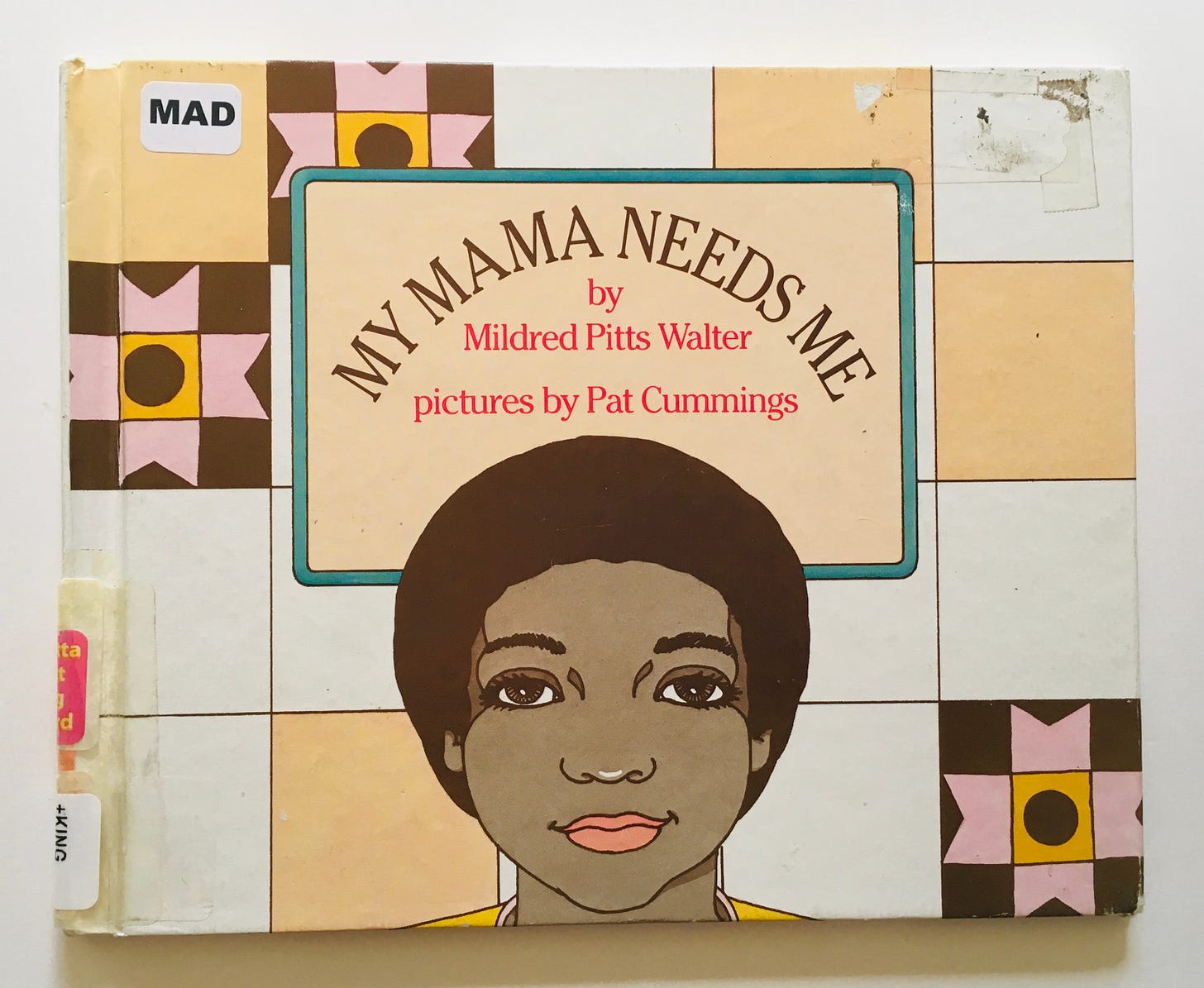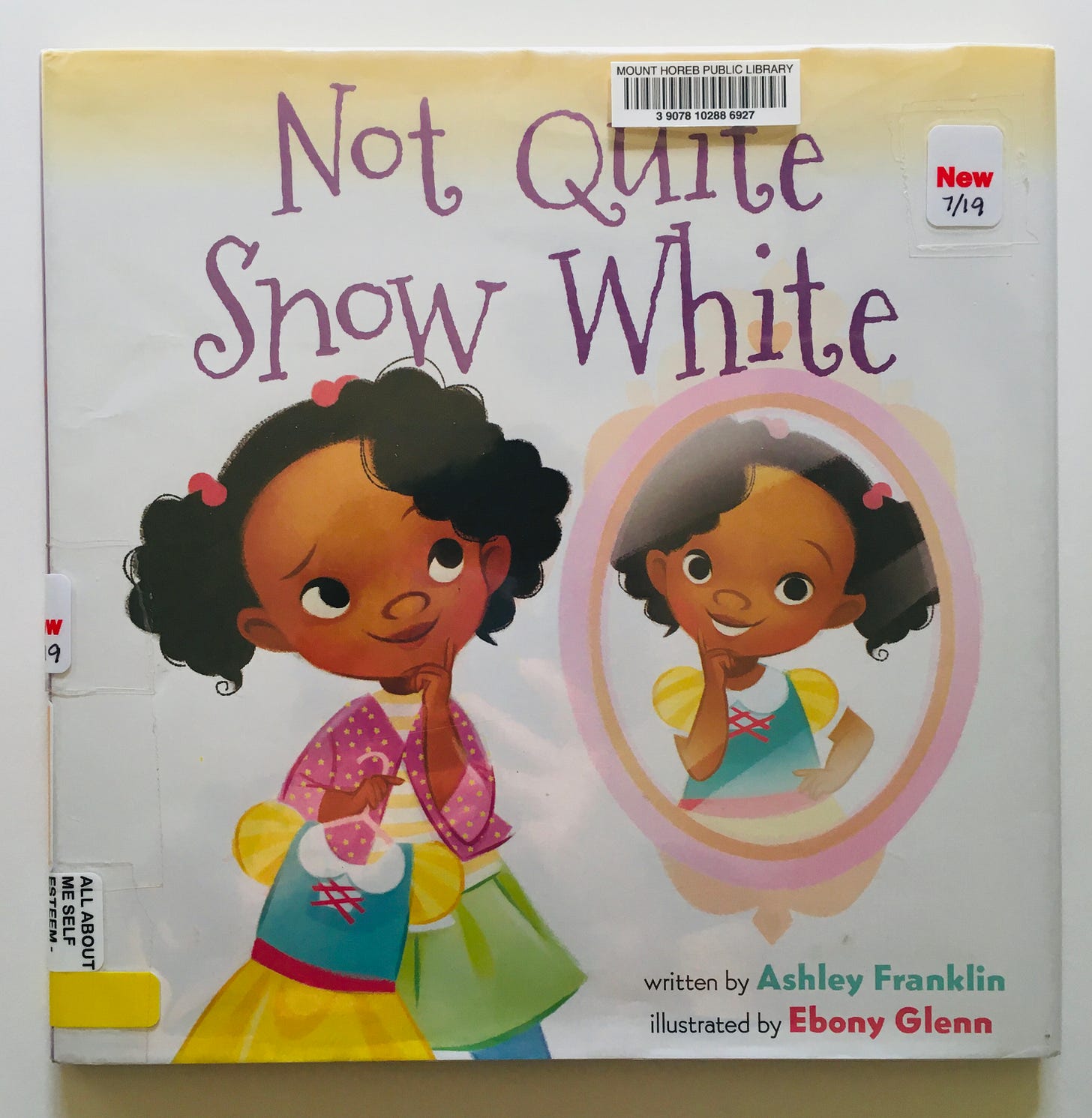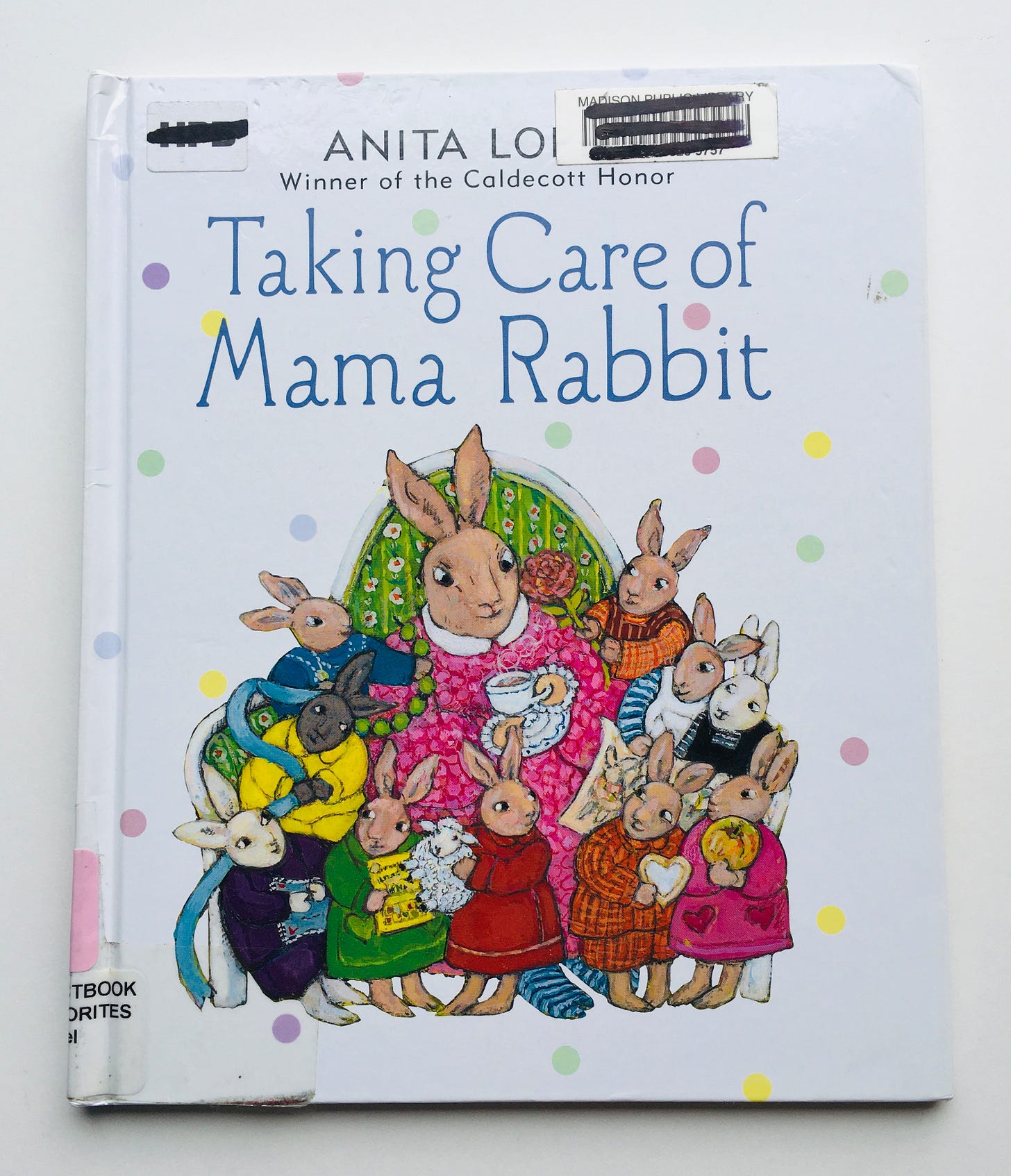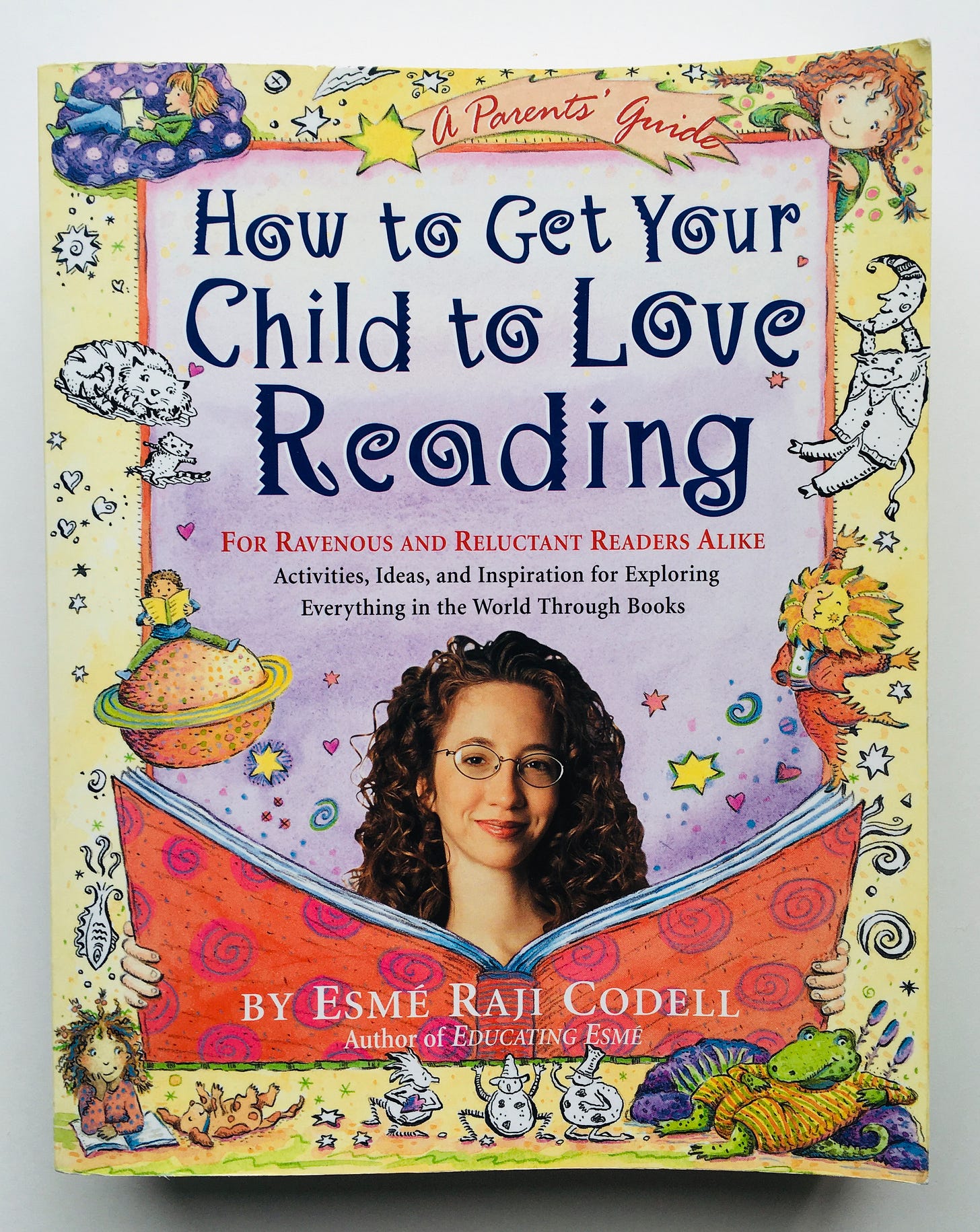Can we read? No. 21
Hi! Hello. How are you? (Really: how are you?)
I’m listening to Benny Goodman this morning — combined with sunshine outside big band music seems to carry me through just a tiny bit of that Groundhog Day feeling I’m experiencing exponentially lately. (Also a weighted blanket, copious amounts of hot cocoa, and sobbing, all of which I highly recommend.)
It seems I can never just start this newsletter without talking at you and I guess today is no different 😊 except that today I also have a question: do you want me to include links to the titles that I review? I am thinking less in the normal weekly issues and more in the special editions (like, for instance, the two-part Christmas issue coming up, that will mention over 75 titles). Would it be helpful to link titles when I offer an abundance of suggestions? Let me know and I’ll make a decision based on your feedback.
Okay, let’s do this.
My Mama Needs Me by Mildred Walter, illustrated by Pat Cummings (1983)
Do not let the 1983 vibes of this book deceive you: it’s dated, to be sure, but only visually, and from the surprisingly strong positive reception it has received in my house, I think the prose satisfies some deep, if not unspeakable than maybe difficult-to-articulate feelings, especially as they pertain to siblings. This is the story of Jason, who desperately wants to be helpful to his mama who has just given birth to his new baby sister. Jason lingers around the house, hovering over both his mother and sibling, unwilling to go far even when his friends want to play with him, even when kindly neighbors offer him diversion in the form of cookies and a walk to feed the ducks. Jason believes his mother needs him and his devotion to her, and his obvious love for his new sister, is both touching and a welcome spin on many “new baby” books, which seem in more contemporary titles to focus heavily on the negative feelings. He waits the whole book until finally, his mother does need him — and at the same time, she reassures him that she doesn’t need him constantly, and it’s okay for him to go play. This title received the Coretta Scott King Award for Illustrators the year it was published (it’s a goal of mine to work through the list in its entirety) but the story is the special part here: I can’t remember a book as tender as this one.
Not Quite Snow White by Ashley Franklin, illustrated by Ebony Glenn (2019)
It’s true we’re on an Ebony Glenn kick lately (I reviewed another of her books just last week), but with good reason: her super cheerful, candy-colored illustrations are so ebullient, it’s hard to look at any of her work without feeling a bit brighter oneself. This is all the more important in this title, where the subject matter is heavy on the heart. Tameika never feels more herself or more alive than when she is singing, dancing, and performing — it’s a vital part of who she is. One day, when she tries out for her school’s very first performance of Snow White: The Musical, some of her fellow classmates whisper that her legs are too long, her body too chubby, her skin too brown, saying “She can’t be Snow White!” This comes as a shock to Tameika, who is not only taken aback and saddened by this garbage, but wonders, “Could those kids be wrong? Maybe she was wrong for wanting to be this princess.” Her parents reassure her that she is “just enough of all the right stuff” — I love this line so much I want to print it on a t-shirt — and though she still lacks her usual confidence, right before her audition she remembers her joy in performing, she remembers who she is. It’s a powerful moment to read aloud — and Tameika nails the audition, which makes it even better. There is nothing I love more than seeing a child (on the page or IRL) believe in themselves. There is so much goodness here — Tameika’s too-much-ness (to which I can definitely relate, basically from birth), her tender feelings of self-doubt (so incredibly human), the strong affirmation she receives from her parents, the way she doesn’t let the bastards get her down, not to mention the deeper themes of racism and bullying, and overlying messaging about self-esteem— this is essential reading.
Taking Care of Mama Rabbit by Anita Lobel (2014)
It’s always interesting to me to see which titles resurface again and again in my household (somewhat of a feat, considering the sheer number of children’s books we have in bookcases, in baskets and in crannies, and generally just lying around on any available surface) — there’s some sort of magic to it, employed or directed entirely by my children, as they seem to never lose track of their beloveds, or the ones that meet some need of theirs deep inside. Taking Care of Mama Rabbit is a book that, ostensibly, appeals to an age group younger than the one my children are in — it is decidedly a toddler or preschooler title — and yet they pull it out repeatedly, so much so that it has become a handbook of sorts for them, and when I am not feeling well, they draw from it. Like Mama Rabbit of the story, when I am, and she is, ill, we both receive a whole list of items to tend to body and mind: the rabbit children (and my human ones) provide cuddly toys, apples, hot chocolate, “a sweet-smelling flower,” a ribbon, a necklace, and various other items of cheer. By the time Papa Rabbit returns with medicine — and by the time I have been ministered to thusly — Mama Rabbit is, and I am, made better by this prodigious demonstration of love. 19th century English educator Charlotte Mason calls this connection to things — the first-hand acquaintance with knowledge, a personal kind of knowing that goes beyond knowledge as something one is told — the “science of relations,” and though it seems a little absurd to call this particular example evidence that my children have formed a relation with the idea of taking care of a loved one when they are sick, that is precisely what they have done. Lobel is a master at what she does as both a writer and illustrator, and she demonstrates those things so well in this sweetly simple yet deeply nurturing book about serving one another in love.
How to Get Your Child to Love Reading by Esme Raji Codell (2003)
When my husband first saw me reading this book years ago he said, “Uh, you don’t need help with that,” but I disagreed then and still disagree now: it is a foundational commitment I have made to my children to not only read and read and read to them for as long as they will let me, but to provide them with every available means that I can to support their literacy and love of reading. In short that means I read all kinds of books on this topic — anything I can get my hands on, really, from titles aimed at parents to those for teachers and reading specialists — regardless of whether or not I actually need the advice anymore (though I always learn something, and that matters).
I’ll be the first to admit that not only is the cover design of this particular title berserk (hey there, 2003! 👋 ) so is the sheer size of the book itself (531 pages!) I have been “reading” it for two years now and I’m still not finished. That’s because it is mostly book lists. There are whole meaty idea sections as well as small commentary on each booklist from Codell — since she was a classroom teacher for many years, and one that taught in classrooms mostly before the digital age, many of her ideas are targeted toward teachers and some of her suggestions seem astonishingly dated given that this book isn’t even 20 years old yet (though I’ve found many inspiring ideas that are easily adapted for home) — but the majority of this tome is every kind of booklist you can think of. Kid obsessed with dinosaurs, fairy tales, private detectives? Gardening, mice, baseball, alternative stories, child authors? Monkeys, money, the weather, cooking, elephants, Medieval England, teeth? She has a list for all those things and many more, all arranged categorically for easy browsing, with multiple indexes (by title, by author, by subject) that make it easy to find what you’re looking for. (It’s a remarkably helpful book that I have used a ton over the years.) Codell goes into very little detail about each title — for that you’ll have to rely on your own search engine skills — but the subtitle is true: this book is chock-full of “activities, ideas, and inspiration for exploring everything in the world through books,” making it a valuable resource and one worth digging into.
Thanks for reading this week, folks. Thank you also to my new subscribers for signing up (hi Dad), and welcome!
If you have a minute (and a preference) please do let me know about including links.
🧞♀️ Wishing you whatever carries you through just a tiny bit of that Groundhog Day feeling. Take care of yourselves.






I don't need links - it's so easy to look things up. Take care and keep up the great work!